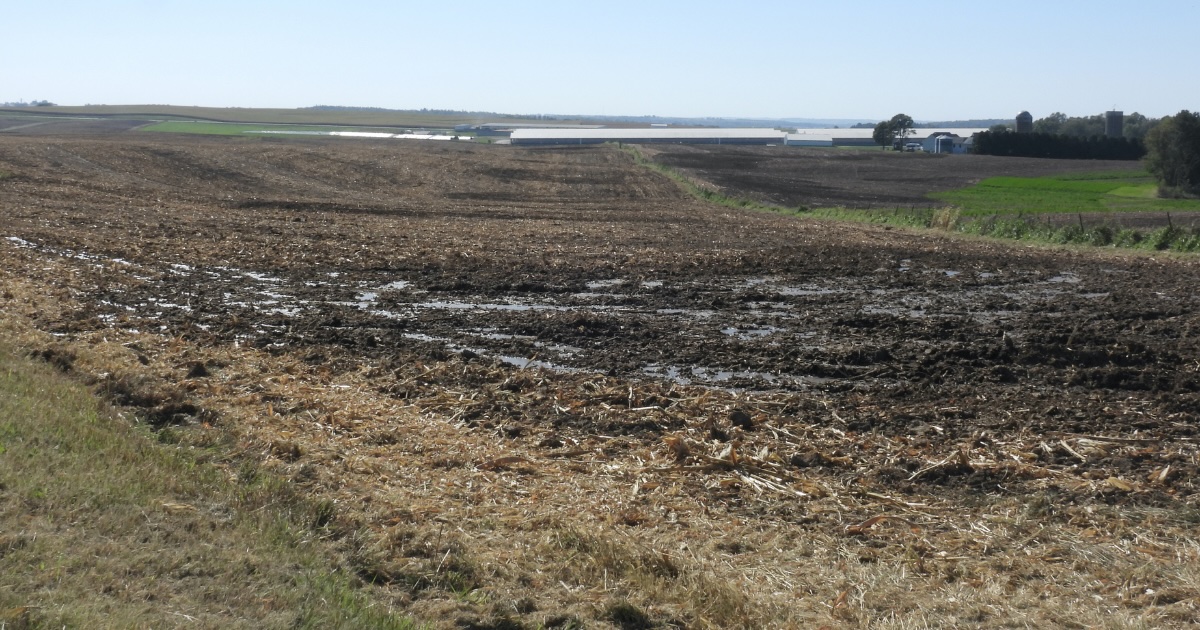Territories owned and managed by Afro-descendant communities in Amazonian countries are under threat from miners, loggers and oil companies eager to exploit natural resources. Yet those territories are among some of the region’s healthiest, according to a new peer-reviewed study.
The report, published Tuesday by the nonprofit Conservation International in the journal Nature Communications Earth and Environment, sheds light on how a historically overlooked population has served as one of Earth’s most effective guardians for centuries.
Afro-descendant people make up about a quarter of the population of Latin America and the Caribbean. Many are the descendants of people forcibly brought to the region as slaves, who later escaped and established settlements in remote areas like the Amazon rainforest.
The study looked at lands occupied for centuries by Afro-descendants in Ecuador, Suriname, Brazil and Colombia, and encompassing forests, mangroves and coastal ecosystems.
The authors used spatial data to compare forest loss on Afro-descendant lands to similar areas nearby, finding that Afro-descendant lands have 29 to 55 percent less deforestation. They also sequester significantly more carbon dioxide and host thousands of unique plant and animal species, many of which are at risk of extinction.
“We found no evidence of deforestation being displaced to areas adjacent to ADP lands or spillover,” the report said, using an acronym for Afro-descendant peoples.
The peoples in the studied countries are known by different names—Quilombos, Mocambos, Cumbes, Palenques and Maroons—reflecting their individual histories and cultures.
The results echo those in similar studies done on Indigenous lands and underscore growing calls from communities, human rights experts and environmentalists for governments to include those groups in environmental decision-making and to formally title Indigenous and Afro-descendant peoples’ lands.
All of the 873 Afro-descendant territories reviewed in the study have some form of legally recognized ownership or management rights over their traditional lands. But that recognition does not necessarily reflect the full extent of their ancestral lands and accounts for a tiny share of Latin American countries, ranging from just under half a percent of land in Brazil to 5 percent in Colombia. And many Afro-descendant communities lack any form of legal land security.
In Colombia, unrecognized Afro-descendant lands cover more than 1.76 million hectares, while in Brazil that figure exceeds 9.1 million hectares. In Suriname, the unrecognized land claims of Maroon and Indigenous peoples are estimated to be more than 10.5 million hectares, the report said.
“Our forests are torn down for timber as the government hands out logging concessions that disregard our land rights,” said Hugo Jabini, a leader of the Saramaka Maroons in Suriname, speaking at a press conference on the report.

In 2007, the Saramaka won a landmark case against the Suriname government before the Inter-American Court of Human Rights, requiring the government to demarcate and title Afro-descendant communities’ lands. But that hasn’t happened, Jabini said.
Suriname’s Ministry of Foreign Affairs, International Business and International Cooperation did not respond to requests for comment. Its Ministry of Land Policy and Forest Management and its Ministry of Spatial Planning and the Environment also did not respond to requests for comment.
“Since 2009, we have been advocating for Suriname to respect the court’s decision,” Jabini said. “The research that we discussed today provides a separate precedent—a scientific precedent that affirms what is very obvious if you visit our communities.”
In other words, Jabini said, the traditions and techniques of Afro-descendant peoples have contributed to the health of ecosystems.
The authors said their report supports this claim. They delved into ethnographic studies to understand communities’ environmental management practices, identifying a few key factors: They adapted ecological knowledge from Africa to their new environments; created diverse food systems; fostered deep spiritual connections with their surroundings; and aligned their survival systems with nature—harming the forest would mean they could no longer access what they needed for medicine, shelter, tools and transportation.
“Management for such multifaceted goals tended to result in highly agrobiodiverse landscapes,” the report said.
In comparison, many of the degraded lands in the region have links to economic and political systems based on the extraction of resources for export. The report highlighted Colombia’s Monte Oscuro region, where an agroecology system based on Afro-descendant management of cocoa was forced to give way to sugarcane monoculture in the mid-20th century, resulting in significant deforestation.
“Afro-descendant territories have been managed for centuries from a different logic,” said Martha Rosero, report co-author and social inclusion director at Conservation International, speaking in Spanish. “That includes practices that allow for adaptation, autonomy and permanence.”
The report referenced a study that examined botanical remnants near former plantations in Suriname, revealing that enslaved people survived by hiding and cultivating diverse crops and minimizing land clearing. Those “escape agricultural practices,” the authors said, persisted in later generations.
Today, Afro-descendant communities face escalating threats. These include pressures from infrastructure development, legal and illegal mining, oil and gas extraction and illicit economies.
Climate change also poses a direct threat, with Afro-descendant communities impacted by extreme weather events like droughts and floods that endanger their livelihoods and cultures.
The report cited Jabini’s Saamaka Maroons in Suriname, where longer droughts have led to the discontinuation of certain African rice varieties, and coastal communities in Ecuador facing health problems like cholera and food insecurity due to severe floods.


At the same time, their lands are key buffers against worsening climate change. The report found the lands studied sequester an estimated 486 million tons of carbon—roughly the annual emissions of Mexico—that if lost due to deforestation could not be sequestered for at least another 30 years. Afro-descendant lands out-perform peers, sequestering an average of 6.8 tons of carbon per hectare, while the combined national average of the studied countries is 5.2 tons.
And in a world where nonhuman life is going extinct roughly 1,000 to 10,000 times faster than the natural rate, Afro-descendant territories have become sanctuaries. Among the thousands of species that live on those lands, 370 are listed as threatened by the International Union for Conservation of Nature.
Despite this, Afro-descendant peoples have historically been sidelined from decision-making in national and global climate and biodiversity processes. Earlier this year, an alliance of Afro-descendant peoples in Latin America and the Caribbean released a declaration calling on governments to include Afro-descendant voices at upcoming United Nations climate talks in Belém, Brazil.
“It is crucial to continue supporting the ADP rights movement in mapping their territories and advocating for their rights so they can continue applying their traditional knowledge to mitigate climate change and protect the biodiversity stored in their lands,” said Carla Cardenas, director of the Latin America program at Rights and Resources Initiative, an advocacy group that supported the declaration and has worked with Afro-descendant peoples on mapping their territories.
There have been small steps toward recognition: The U.N. declared 2015 to 2024 the International Decade for People of African Descent. Countries acknowledged Afro-descendant communities’ contributions and knowledge at last year’s Convention on Biological Diversity meeting in Colombia.
The authors of the new report called on policymakers to do more. That includes investing in Afro-descendant communities and supporting more research into their management practices, using the insights to inform governments’ conservation strategies.
“We can prove that we are the guardians of the forest, that we have maintained this part of the Amazon forest in a sustainable way for more than 300 years,” Jabini said, re-emphasizing the importance of land rights. “We are people, so we have rights, and we have to be recognized legally.”
About This Story
Perhaps you noticed: This story, like all the news we publish, is free to read. That’s because Inside Climate News is a 501c3 nonprofit organization. We do not charge a subscription fee, lock our news behind a paywall, or clutter our website with ads. We make our news on climate and the environment freely available to you and anyone who wants it.
That’s not all. We also share our news for free with scores of other media organizations around the country. Many of them can’t afford to do environmental journalism of their own. We’ve built bureaus from coast to coast to report local stories, collaborate with local newsrooms and co-publish articles so that this vital work is shared as widely as possible.
Two of us launched ICN in 2007. Six years later we earned a Pulitzer Prize for National Reporting, and now we run the oldest and largest dedicated climate newsroom in the nation. We tell the story in all its complexity. We hold polluters accountable. We expose environmental injustice. We debunk misinformation. We scrutinize solutions and inspire action.
Donations from readers like you fund every aspect of what we do. If you don’t already, will you support our ongoing work, our reporting on the biggest crisis facing our planet, and help us reach even more readers in more places?
Please take a moment to make a tax-deductible donation. Every one of them makes a difference.
Thank you,

















